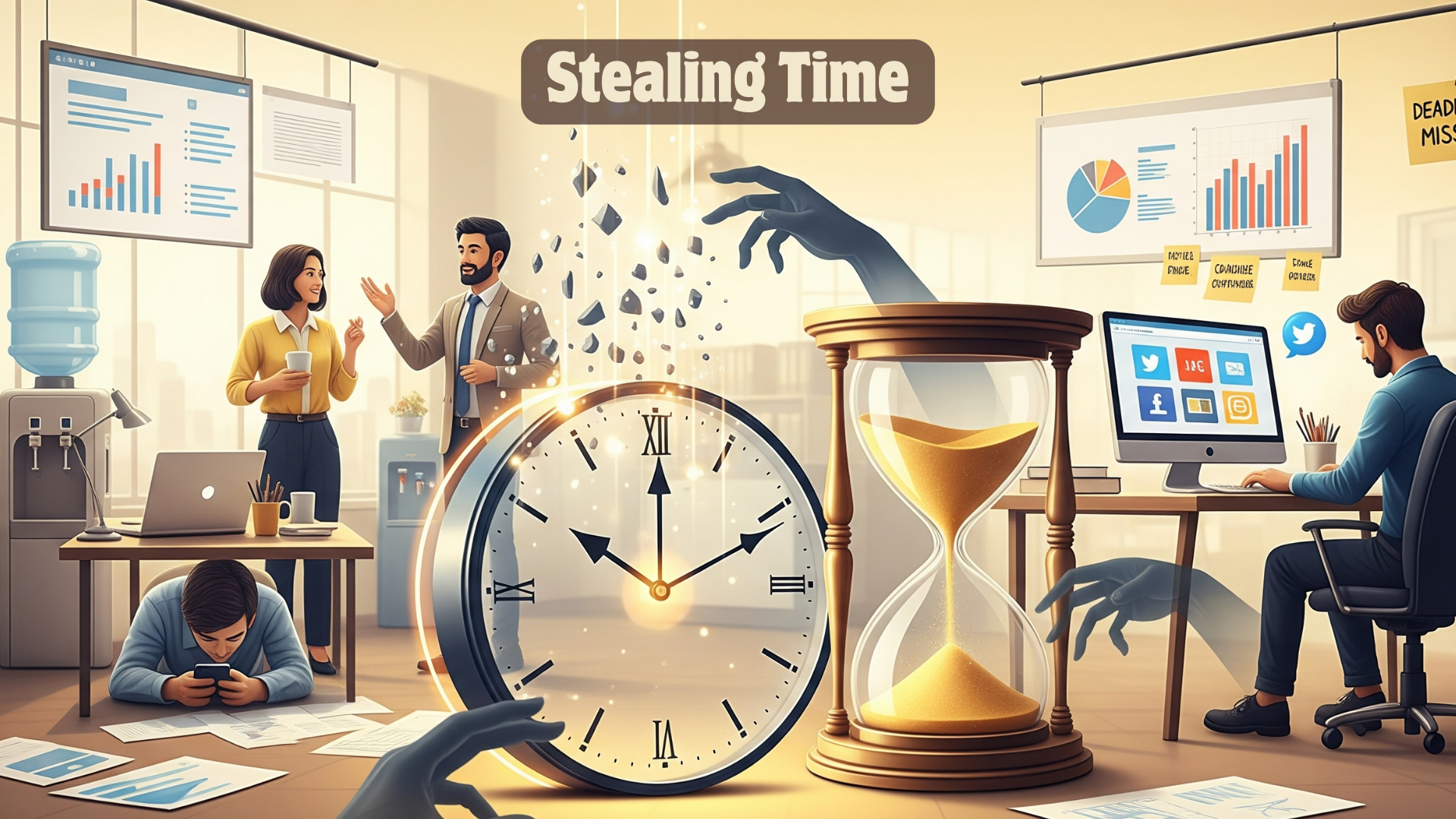Stealing Time: Are You Losing Precious Hours Without Realizing It?

Have you ever noticed how some days seem to fly by while others drag endlessly? Or why, despite being busy all day, do you accomplish less than expected? The answer might surprise you: your days may be slipping away without you even realizing it. But what does this mean, and how can you take back control of your time?
In simple terms, stealing time refers to engaging in habits or activities that reduce productivity, distract from priorities, or diminish the quality of both work and personal life. It isn’t always about intentional laziness; sometimes, it’s subtle, hidden in routines that seem harmless. Understanding how this happens is the first step toward reclaiming control over your schedule.
Why Lack of Awareness Leads to Time Theft
Time is our most valuable resource, yet many of us treat it carelessly. Often, digital distractions such as smartphones, social media, and endless notifications fragment our focus. Poor planning and over commitment dilute attention, while the myth of multitasking slows progress and decreases the quality of output. Even procrastination, seemingly harmless, steals the momentum needed to accomplish meaningful goals. Many people are unaware that their daily habits chip away at productivity, leaving them feeling frustrated despite working long hours.
Subtle Clues That You’re Not Using Your Time Wisely
Identifying when your time is being misused is crucial. You might notice that, despite feeling constantly busy, your accomplishments are minimal. Tight deadlines sneak up, personal projects get postponed, and even small tasks take longer than they should. You may frequently lose track of time during trivial activities, and your work quality might fluctuate. This combination of constant busyness with little progress is a clear indication that time is being stolen, often without conscious awareness.
How to Reclaim Stolen Time
Breaking the cycle of lost hours begins with awareness and a clear plan. A good first step is to audit how you spend your day. Track every activity for a week to understand where hours are slipping away. Once you recognize these patterns, channel your energy into the tasks that truly make a difference. Techniques such as the Eisenhower Matrix, which separates urgent tasks from important ones, can help prioritize effectively.
Setting boundaries is equally crucial. Limiting social media, email checks, and unnecessary meetings preserves focus, while clear time blocks for work, rest, and personal life help maintain balance. Embracing single-tasking is another powerful approach. Dedicate uninterrupted time to one task at a time using techniques like the Pomodoro Method or time-blocking to maximize concentration. Additionally, identify repetitive or low-value tasks that can be automated or delegated to free your energy for high-impact work.
The Psychology of Lost Time
Losing track of time is often less about laziness and more about how our minds perceive and respond to daily demands. Using a time card calculator can help highlight patterns, as instant gratification bias makes short-term rewards, such as checking social media or messages, more appealing than long-term goals. Task aversion leads people to delay challenging or unpleasant work, subconsciously “stealing” time from productive hours. Habitual autopilot behaviour can quietly consume hours, leaving individuals unaware of the lost potential. Understanding these psychological tendencies is essential for creating strategies that replace harmful habits with intentional, time-respecting practices.
When Time Slips Away: Stealing vs. Wasting
Although these terms are often used as if they mean the same thing, there’s a subtle yet crucial distinction. Losing time often happens unconsciously through habitual behaviours that quietly erode productivity and focus. Wasting time, in contrast, is usually a deliberate choice for leisure or entertainment. The key difference lies in awareness: unconscious time loss can be corrected with mindful strategies, while intentional downtime serves a clear purpose of rest and rejuvenation. Recognizing the distinction can prevent unintentional losses and allow for more strategic management of your schedule.
Tools and Techniques to Prevent Time Theft
Leveraging technology can be a powerful way to combat time theft. Time-tracking applications like RescueTime or Toggl help monitor daily activities and highlight inefficiencies. Focus-oriented apps such as Forest or Freedom can reduce distractions, while short daily reflections allow you to review accomplishments and identify bottlenecks. Mindfulness practices, including meditation or simple breathing exercises, can improve attention span and reduce impulsive behaviours that steal time from important tasks. By combining self-awareness with practical tools, reclaiming lost hours becomes far more achievable.
You can also watch : Experience Seamless Field Management with EmpMonitor’s Field Force Tracking Application
Summary
Stealing time is a subtle but significant productivity thief. It hides in distractions, multitasking, procrastination, and unstructured routines. By auditing daily activities, prioritizing tasks, setting boundaries, and embracing focused work, individuals can regain lost hours and improve both efficiency and overall satisfaction.
FAQs:
How do I know if I’m stealing time?
Signs include constant busyness with little output, missed deadlines, and frequent distractions.
Can technology help prevent time?
Yes. Tracking apps and focus tools enhance awareness and help maintain productivity.
Is stealing time always harmful?
Short breaks or minor indulgences are natural and beneficial. Problems arise when the behaviour becomes habitual and counterproductive.
- Art
- Causes
- Crafts
- Dance
- Drinks
- Film
- Fitness
- Food
- Spellen
- Gardening
- Health
- Home
- Literature
- Music
- Networking
- Other
- Party
- Religion
- Shopping
- Sports
- Theater
- Wellness



